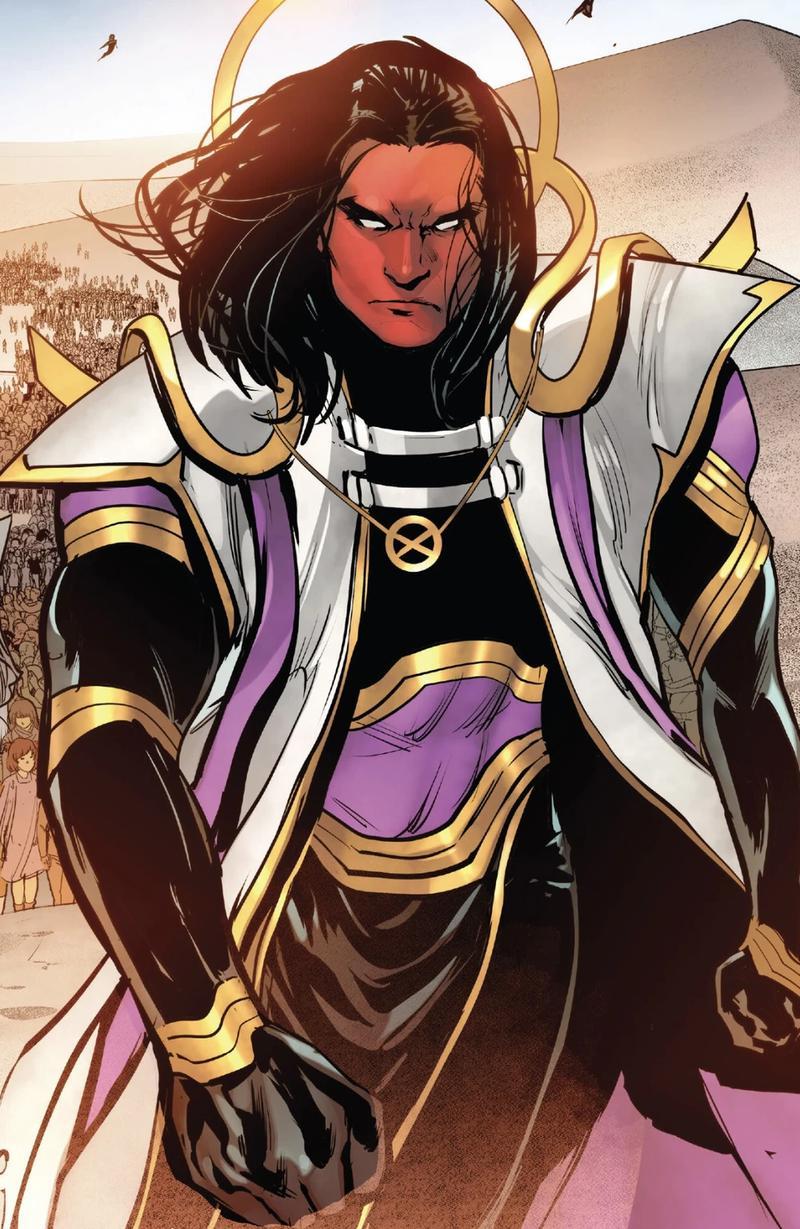
As Marvel Studios maps out Phase 7, the X-Men reboot offers a chance to redefine the MCU’s mutant narrative. While fans expect Magneto, Storm, and Professor X to dominate, lesser-known Omega-level mutants could steal the show.
Omega-level mutants, as defined in Jonathan Hickman's House of X #1, possess abilities with no known upper limit, making them among the most powerful beings in existence. These underutilized characters could bring fresh stories and staggering powers to the MCU’s mutant saga, which Marvel delayed.
From reality-warping telepaths to matter-manipulating gods, these 10 mutants deserve consideration for the X-Men reboot. Their diverse abilities and rich histories could set the MCU apart from past X-Men films. To date, only a handful of Omega-level mutants have had a live-action debut.
Marvel's Underrated Omega-Level Mutants
Iceman (Bobby Drake)

Bobby Drake, aka Iceman, is a founding X-Men member introduced in X-Men #1 (1963). His Omega-level cryokinetic powers, detailed in Astonishing X-Men #65, let him manipulate moisture at a molecular level, crafting ice constructs, freezing environments, and reforming his body from vapor or liquid.
Once underestimated as a jokester, Bobby’s evolution in X-Men: Forever revealed his near-infinite potential, controlling sub-zero temperatures across vast areas. His struggle with identity and untapped power makes him a dynamic candidate for the MCU.
Vulcan (Gabriel Summers)

Gabriel Summers, better known as Vulcan and brother to Cyclops and Havok, debuted in X-Men: Deadly Genesis (2005). His Omega-level energy manipulation, showcased in War of Kings, allows him to absorb, redirect, and generate any energy form, from light to cosmic radiation.
Abducted by the Shi’ar as a child, Gabriel’s rage-fueled rise to Emperor of the Shi’ar Empire highlights his galactic threat level. His ability to suppress or steal the powers of other mutants makes him a formidable MCU villain, just like the three other villains announced to feature in the X-Men reboot.
Exodus (Bennet du Paris)

Bennet du Paris, known as Exodus, emerged in X-Factor #92 (1993) as a 12th-century knight turned mutant zealot. His Omega-level abilities include telepathy rivaling Professor X, telekinesis strong enough to levitate cities, and functional immortality, as seen in Blood of Apocalypse.
A devout follower of Magneto’s mutant supremacy (depicted in X-Men '97), Exodus’ ancient origins and unyielding ideology make him an interesting antagonist. He has a complex background that could make the perfect MCU storyline.
Monarch (Jamie Braddock)

Jamie Braddock, aka Monarch, Psylocke’s brother, debuted in Captain Britain #9 (1976) and was officially classified as Omega-level in House of X #1 (2019). His quantum reality manipulation lets him reshape matter, time, and existence, as shown in X-Men: Sword of the Braddocks.
Initially a selfish playboy, Jamie’s descent into madness amplified his chaotic powers, making him a multiversal threat. His unpredictable nature offers the MCU a wild card for cosmic or psychological X-Men narratives.
Legion (David Haller)

David Haller, Professor X’s son Legion, appeared in New Mutants #25 (1985). His Omega-level powers manifest through countless personalities, each controlling unique abilities like telepathy, telekinesis, or reality-warping.
This was on full display in X-Men: Legacy. Abandoned to manage his fractured psyche, David’s struggle was explored in FX’s Legion. His mental complexity and godlike potential make him a formidable threat.
Kid Omega (Quentin Quire)

Quentin Quire, aka Kid Omega, debuted in New X-Men #134 (2003) as a rebellious student at Xavier’s Institute. His Omega-level telepathy and intellect, shown in Wolverine and the X-Men, enable mind-reading, psychic abilities, and hyper-accelerated cognition.
Quentin’s punk attitude and anarchist ideals spark conflict with traditional X-Men values. His youthful energy and sharp wit could inject a modern, rebellious vibe into the MCU’s mutant roster.
X-Man (Nate Grey)

Nate Grey, X-Man, emerged in X-Man #1 (1995) as a genetically engineered mutant from the Age of Apocalypse reality. His Omega-level telepathy and telekinesis, surpassing Jean Grey’s, allow him to manipulate matter and energy, as seen in X-Man #75. Raised in a dystopian world, Nate’s quest for identity and multiversal origins makes him a compelling MCU addition.
Hope Summers

Hope Summers, introduced in X-Men: Messiah Complex #1, is the first mutant born after House of M. Her Omega-level ability to mimic and amplify mutant powers, per Generation Hope, positions her as a messianic figure in mutantkind’s survival.
Raised by Cable in a war-torn future, Hope’s leadership in Avengers vs. X-Men showcased her strategic mind. Her leadership skills and the influence she commands in the mutant world make her an interesting character.
Isca the Unbeaten

Isca the Unbeaten, from X‑Men #12 (Vol. 5, 2020) and X of Swords: Creation (2020), hails from the ancient mutant nation of Arakko. Her Omega-level adaptive ability ensures she cannot lose any contest, automatically adjusting her strength, speed, or skills, making her a unique and interesting character.
A warrior loyal to Krakoa’s sister island, Isca’s mythic presence and unbeatable nature offer the MCU a legendary figure. Her conquests in mutant history could enrich the reboot’s lore.
Mister M (Absolon Mercator)

Absolon Mercator, Mister M, debuted in District X #2 (2004) as a reclusive mutant in Mutant Town. His Omega-level matter manipulation, detailed in X-Men #171, lets him alter subatomic structures, disintegrate objects, or heal wounds.
Shunning power for solitude, Absolon’s godlike abilities and introspective nature create an enigmatic figure. His moral ambiguity could add depth to the MCU’s X-Men as an ally or wildcard.
Geraldo Amartey is a writer at The Direct. He joined the team in 2025, bringing with him four years of experience covering entertainment news, pop culture, and fan-favorite franchises for sites like YEN, Briefly and Tuko.












